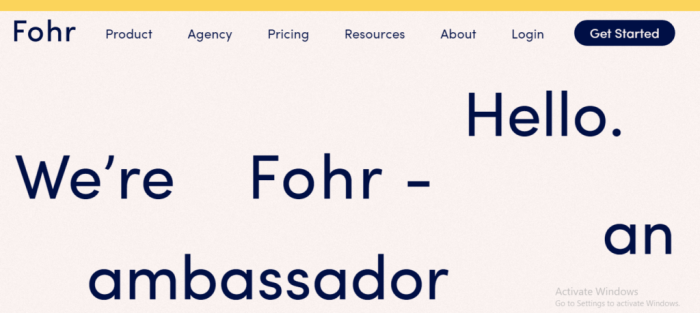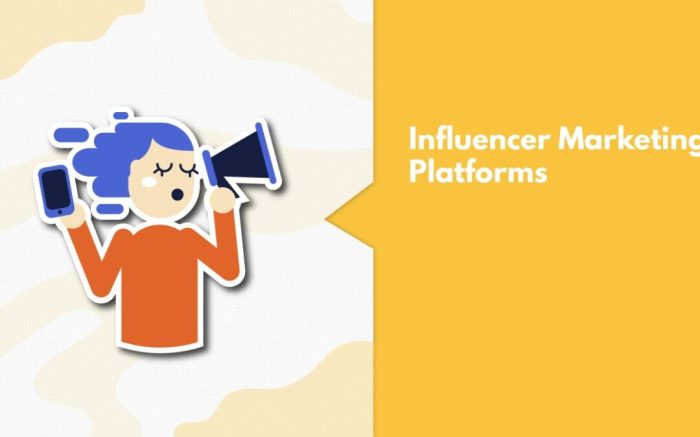Best platforms for influencer campaigns are crucial for brands aiming to connect with their target audiences through authentic voices. In the ever-evolving landscape of digital marketing, influencer campaigns have emerged as a powerful strategy, allowing brands to leverage the reach and credibility of social media influencers. The right platform can significantly enhance the effectiveness of these campaigns, driving engagement and ROI.
With various options available, understanding the different types of influencer platforms and their unique features is essential. Social media giants like Instagram, TikTok, and YouTube offer diverse audience demographics and engagement styles, while dedicated influencer marketing platforms provide tailored tools for brands. As influencer marketing continues to grow, selecting the ideal platform becomes a pivotal decision for ensuring campaign success.
Best Platforms for Influencer Campaigns
Influencer campaigns have become an essential strategy for brands looking to connect with their target audience and increase their market visibility. By leveraging the reach and credibility of influencers, brands can effectively promote their products or services. Choosing the right platform for these campaigns is crucial, as it directly impacts engagement and conversion rates. According to studies, influencer marketing can yield up to 11 times higher ROI compared to traditional digital marketing methods.
Overview of Influencer Campaigns

Influencer campaigns involve partnering with individuals who have established credibility and a following in a particular niche. These influencers promote products or services to their audience, often leading to increased brand awareness and sales. The effectiveness of influencer marketing is underscored by the statistic that 49% of consumers depend on influencer recommendations when making purchasing decisions.
Types of Influencer Platforms, Best platforms for influencer campaigns
There are several types of platforms available for influencer marketing, each catering to different audiences and content types. Key platforms include:
- Social Media Platforms: Popular networks like Instagram, TikTok, and YouTube dominate the influencer landscape, offering visual content that resonates well with users.
- Influencer Marketing Platforms: Specialized tools like AspireIQ and Upfluence enable brands to connect with influencers, manage campaigns, and track results effectively.
- Blogs and Websites: Influencers who maintain blogs can provide in-depth reviews and articles that attract a dedicated readership.
Criteria for Choosing the Best Platform
Selecting the right platform for your influencer campaign requires consideration of several key factors:
- Audience Demographics: Understanding the demographic profile of the platform’s users is critical for targeting your campaign.
- Content Format: Different platforms support various content types, from short videos to in-depth articles, which should align with your campaign goals.
- Engagement Rates: Platforms with high engagement rates can lead to better visibility and interaction with your target audience.
| Platform | Demographics | Content Type | Engagement Rate |
|---|---|---|---|
| 18-34 years, predominantly female | Images, Stories, Reels | 1.22% | |
| TikTok | 16-24 years, diverse gender | Short videos | 9.38% |
| YouTube | 18-49 years, equal gender split | Long videos | 1.67% |
Aligning the platform features with your campaign objectives is essential to maximize the return on investment.
Popular Influencer Marketing Platforms
The influencer marketing landscape features several prominent platforms that are widely used by brands today.
- Instagram: Known for its visual content, Instagram boasts features like Stories and IGTV that enhance influencer collaboration.
- TikTok: With its rapid growth, TikTok allows influencers to create engaging short videos, making it ideal for brands targeting younger demographics.
- YouTube: As a long-form video platform, YouTube is effective for detailed product reviews and tutorials, often seen as credible by viewers.
Successful campaigns, such as the collaboration between Gymshark and fitness influencers on Instagram, have demonstrated the potential for significant sales increases.
Strategies for Effective Campaigns

Creating successful influencer campaigns requires a structured approach:
- Identify campaign goals and objectives.
- Select the appropriate platform based on audience demographics and content type.
- Engage with influencers who align with your brand values.
- Develop creative content that resonates with the audience.
- Utilize analytics tools to track campaign performance and make necessary adjustments.
Analytics tools are vital in measuring campaign success, enabling brands to refine their strategies based on performance data.
Case Studies of Successful Influencer Campaigns

Several brands have effectively utilized influencer campaigns across different platforms.
| Brand | Platform | Campaign Description | Outcome |
|---|---|---|---|
| Daniel Wellington | Partnered with micro-influencers to showcase watches. | Boosted sales by 200% within one year. | |
| Fenty Beauty | YouTube | Utilized beauty influencers for product launches. | Achieved $100 million in sales in its first 40 days. |
| Gymshark | TikTok | Created challenges with fitness influencers. | Increased brand awareness and follower count significantly. |
Lessons learned from these campaigns include the importance of authenticity and the need to choose influencers who genuinely connect with the brand.
Challenges and Solutions in Influencer Marketing
Brands often face challenges in influencer marketing, such as:
- Finding the right influencers: It can be overwhelming to choose influencers who align with brand values.
- Measuring ROI: Tracking the success of campaigns is not always straightforward.
- Maintaining authenticity: Ensuring that influencer partnerships feel genuine can be difficult.
Solutions for overcoming these challenges include thorough research to select appropriate influencers, utilizing tracking tools for performance measurement, and fostering open communication with influencers to maintain authenticity.
Future Trends in Influencer Campaigns
The future of influencer marketing is bright, with several emerging trends:
- Increased focus on authenticity: Audiences are demanding transparency and genuine endorsements.
- Technological advancements: Innovations such as AI will enhance influencer discovery and campaign management.
- Expansion into niche markets: Brands are increasingly targeting niche audiences for higher engagement rates.
Predictions indicate that as technology evolves, influencer marketing will become more data-driven, allowing brands to tailor campaigns more effectively to specific audience segments.
End of Discussion: Best Platforms For Influencer Campaigns
In conclusion, navigating the landscape of influencer marketing platforms requires careful consideration of various factors, including audience alignment and platform features. Successful campaigns leverage the strengths of these platforms, utilizing analytics and strategic engagement to drive results. As trends evolve and technology advances, staying ahead of the curve will be essential for brands looking to capitalize on the power of influencer marketing.